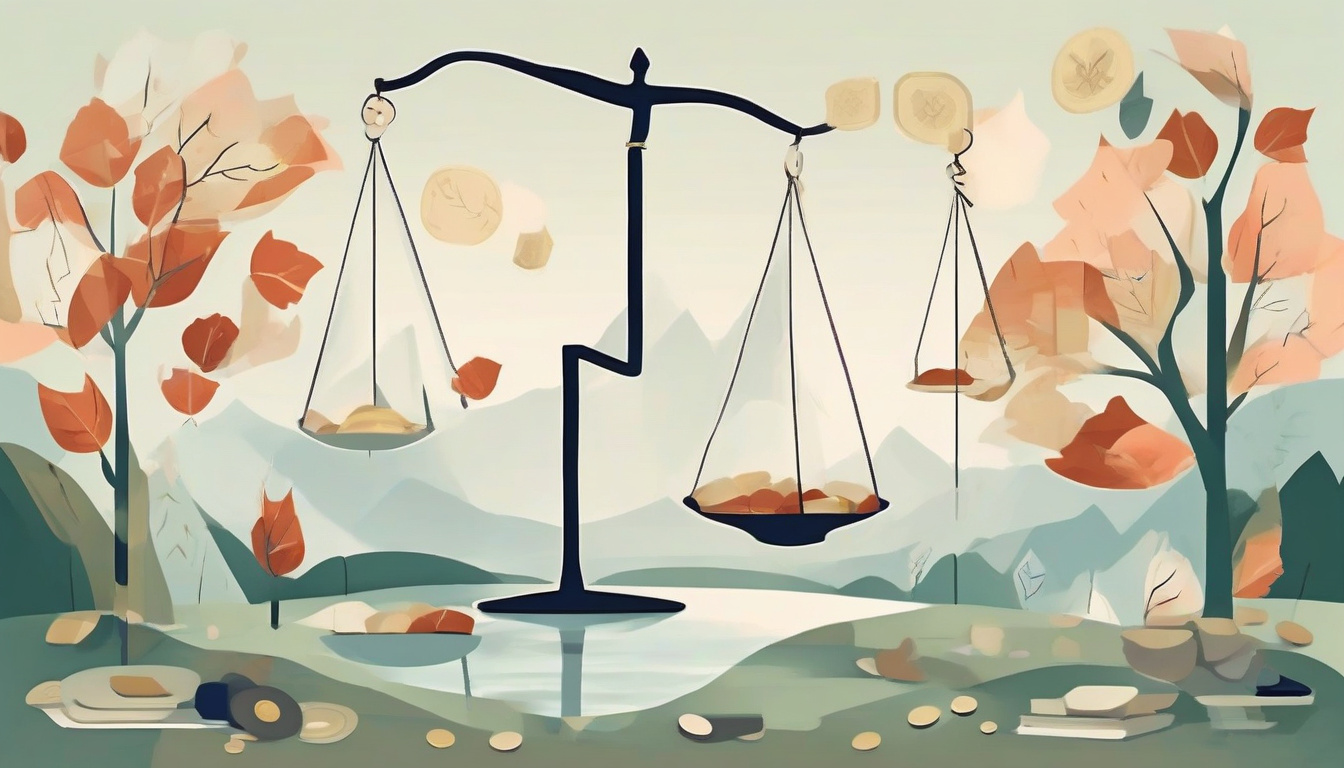Unlocking Financial Freedom: The Ultimate Guide to Debt Settlement Strategies
In a world increasingly burdened by debt, achieving financial freedom can seem like an elusive dream. If you’re struggling with unsecured debts like credit cards, medical bills, or personal loans, you might be considering debt settlement as a viable option. Debt settlement involves negotiating with creditors to reduce the total amount owed. This comprehensive guide will take you through the ins and outs of debt settlement strategies, including its benefits and drawbacks, actionable steps to effectively negotiate your debt, and alternative options to consider if debt settlement isn’t right for you. Whether you’re drowning in bills or just looking for a way to regain control of your finances, this guide will provide you with the knowledge and tools you need to navigate the challenging waters of debt.

Key Takeaways
- Debt settlement involves negotiating with creditors to reduce the total amount owed.
- While it can provide financial relief, debt settlement may negatively impact your credit score.
- Successful debt settlement requires a strategic approach and clear communication with creditors.
- Many misconceptions about debt settlement can lead individuals to avoid effective solutions.
- Exploring alternative debt relief options, such as consolidation or bankruptcy, can also be beneficial.
Understanding Debt Settlement: What It Is and How It Works
Debt settlement is a financial process where individuals negotiate with creditors to reduce the total amount they owe on their debts. Unlike traditional debt repayment methods, which often involve paying back the full balance with interest, debt settlement focuses on reaching an agreement to pay a reduced lump sum or installment amount that is considered a fair compromise by the creditor.
The process typically begins when a debtor engages a debt settlement company or attempts to negotiate directly with their creditors. During negotiations, the debtor may offer a lump sum payment that is significantly lower than the total debt owed, citing their financial hardship as a reason for the request. For creditors, accepting a lower payment can be preferable to the possibility of the debtor declaring bankruptcy, which could result in a total loss of the debt.
It’s important to note that debt settlement can have both positive and negative implications. On one hand, it can provide a quicker path to financial relief and help individuals avoid bankruptcy. On the other hand, it can negatively impact credit scores and can also involve fees charged by debt settlement companies. Additionally, typically, the forgiven debt may be considered taxable income by the IRS, meaning debtors could face unexpected tax liabilities afterward. Thus, while debt settlement can be a useful tool for managing overwhelming debt, it should be considered carefully with full understanding of the potential repercussions.
The Pros and Cons of Debt Settlement
When it comes to managing overwhelming debt, debt settlement can seem like a tempting solution for individuals seeking a way out. However, like any financial strategy, it has its pros and cons, which are essential to understand before making a decision.
### Pros of Debt Settlement
1. Reduced Total Debt: One of the most appealing aspects of debt settlement is the potential to significantly reduce the total amount owed. By negotiating with creditors, individuals may secure agreements that allow them to pay less than what they originally owed, sometimes achieving settlements as low as 50%-70% of their total debt.
2. Quick Resolution: Debt settlement can often expedite the process of getting out of debt. Unlike bankruptcy, which can take years to complete, settling debts allows borrowers to resolve their financial obligations more quickly, often within a few months to a couple of years.
3. Relief from Collectors: Once a debt is settled, consumers experience immediate relief from aggressive debt collection efforts. This can alleviate the stress and anxiety that often accompany unpaid debts.
### Cons of Debt Settlement
1. Impact on Credit Score: One of the most significant drawbacks of debt settlement is its negative impact on credit scores. Settling debts for less than the full amount owed can lead to a lower credit rating, which may hinder future borrowing opportunities.
2. Potential Tax Consequences: The Internal Revenue Service (IRS) considers forgiven debts as taxable income, which means that individuals may face tax liabilities on the forgiven amount—an unexpected financial burden post-settlement.
3. No Guarantees: There’s no guarantee that creditors will agree to a settlement offer, which can prolong the financial distress for individuals still trying to negotiate their debts.
In summary, while debt settlement can provide a path to financial relief, weighing its advantages against its drawbacks is crucial for anyone considering this route.
‘The secret to financial success is to learn to manage your debt, rather than let your debt manage you.’ – Unknown

Steps to Negotiate Your Debt Settlement
Negotiating a debt settlement can be a daunting process, but following these systematic steps can make it more manageable. First, you need to gather all relevant information about your debts, including the total amount owed, interest rates, and the names of creditors. This will help you understand your current financial situation and prepare for negotiations. Second, create a budget to evaluate how much money you can allocate towards settling your debts. This budget will guide you on how much you can realistically offer to your creditors. Third, initiate communication with your creditors. Start by explaining your financial hardships and express your desire to settle the debt for less than the full amount. It’s important to be polite and maintain a calm demeanor during these conversations. Fourth, propose a realistic settlement amount. Often, creditors are willing to accept a significant reduction, especially if it’s a lump sum payment. Be prepared to negotiate and don’t hesitate to provide any documentation that supports your case. Fifth, once an agreement is reached, get everything in writing before making any payments. This documentation will serve as proof that the debt was settled, which is crucial for your credit report. Finally, after the settlement is completed, follow up with your creditors to ensure they update your credit report accordingly. By following these steps, you can effectively negotiate your debt settlement and work towards a more stable financial future.
Common Myths About Debt Settlement Debunked
Debt settlement is often cloaked in misconceptions that can mislead individuals looking for effective financial solutions. One of the most pervasive myths is that debt settlement will eliminate all your debts instantly, leaving you debt-free overnight. In reality, while debt settlement can significantly reduce the total amount you owe, it often requires negotiation with creditors, and most settlements take time to finalize.
Another common myth is that debt settlement only benefits individuals with serious financial troubles. However, many people with manageable debt levels also choose this route as a proactive measure, securing terms that keep their finances on track before their situations worsen. Additionally, some believe that disability to pay their debts means they must settle them; on the contrary, creditors often prefer negotiated payments over the long-term loss of the debt.
It’s also crucial to address the misconception that hiring a debt settlement company guarantees success. While these companies can facilitate negotiations, the outcome depends heavily on the specific situation, including the type of debts, creditors involved, and the economic climate.
Lastly, many fear that debt settlement will ruin their credit score permanently. Indeed, there may be short-term negative impacts, but with responsible financial management following settlement, individuals often see their credit recover within a few years. Understanding these myths allows consumers to navigate the debt settlement process with realistic expectations and informed decisions.

Alternative Debt Relief Options You Should Consider
### Alternative Debt Relief Options You Should Consider
When it comes to managing overwhelming financial burdens, many individuals look towards traditional solutions such as bankruptcy. However, debt settlement emerges as a compelling alternative that can offer a more manageable path towards financial recovery. In the world of debt relief, it’s crucial to explore various options to find what best suits your situation. Here are some alternative debt relief strategies to consider alongside debt settlement:
####
1. Debt Consolidation
Debt consolidation involves merging multiple debts into a single new loan, usually at a lower interest rate. This simplifies payments and could lower your monthly obligations, making it easier to manage your finances. For example, if you have high-interest credit card debt, a consolidation loan could reduce your monthly payment while also helping you pay off your debt faster.
####
2. Credit Counseling
Working with a certified credit counselor can provide personalized strategies to manage your debts. Counselors can help you develop a budget, negotiate with creditors, and work out a debt management plan (DMP). A DMP may involve lower interest rates and waived fees, providing an alternative approach to debt settlement.
####
3. Personal Loans
Another option is to take out a personal loan to pay off debts. This could be beneficial if you qualify for a lower interest rate than you’re currently paying on your debts. This method might be particularly appealing if you have a good credit score and need to consolidate debts that are otherwise difficult to manage.
####
4. Negotiating with Creditors
Instead of formal debt settlement, consider directly negotiating with your creditors. Many creditors are willing to work with you if they believe you can’t pay your full balance. This could involve asking for lower interest rates, reduced monthly payments, or even a one-time settlement of a portion of your debt.
####
5. Bankruptcy
While it’s often seen as a last resort, bankruptcy can provide a fresh start for those deeply overwhelmed by debt. Chapter 7 or Chapter 13 bankruptcy can eliminate or restructure your debts, respectively. However, it comes with substantial consequences and should be considered after exploring alternative options like debt settlement.
Choosing the right path depends on individual circumstances, and while debt settlement might work for many, these alternatives can offer various levels of relief and flexibility. Always weigh the pros and cons and consider seeking professional advice to ensure you make the best decision for your financial future.
